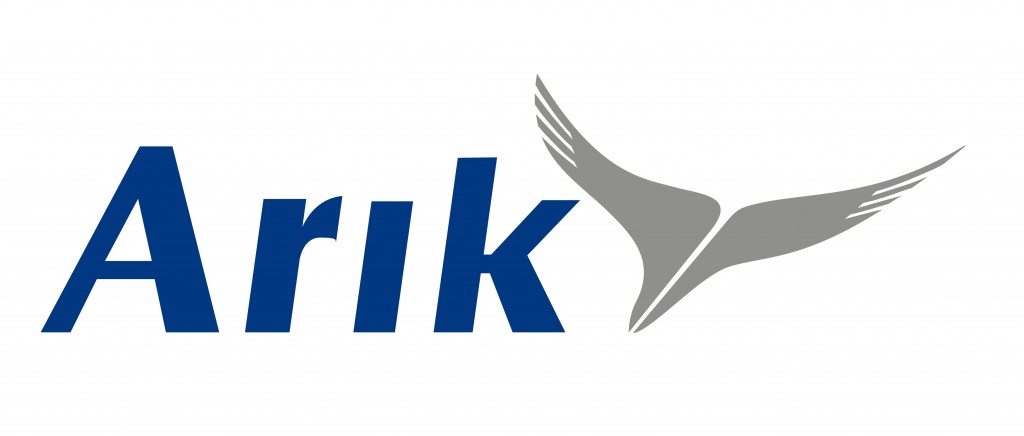News
Nigeria Police Charge 4 Journalists with Cybercrimes for Corruption Reporting

Despite recent reforms to Nigeria’s Cybercrimes Act, journalists continue to be targeted for publishing news in the public interest, with four reporters being charged under the law last month, according to Committee to Protect Journalists (CPJ), an independent, nonprofit organization that promotes press freedom worldwide.

Cybercrime laws and other regulations governing online content have been widely used to jail journalists around the world.
In Nigeria, at least 29 journalists have faced prosecution under the cybercrimes law since it was enacted in 2015.
CPJ had warned that February’s amendments to the law, which followed years of advocacy by human rights groups and CPJ, still left journalists at risk of prosecution due to an overly broad definition of what is a criminal offense. Since the law was reformed, it has been used to summon, intimidate, and detain journalists for their work.
On September 20, police in western Lagos State separately arrested Olurotimi Olawale, editor of the privately owned National Monitor newspaper, and Precious Eze Chukwunonso, publisher of the privately owned News Platform website, Nigerian Guild of Investigative Journalists’ president, Abdulrahman Aliagan, told CPJ.
On September 25, police arrested Rowland Olonishuwa, a reporter with the privately owned Herald newspaper, in western Kwara state and Seun Odunlami, publisher of privately owned Newsjaunts website, in nearby Ogun state, Aliagan and Kwara-based journalist Dare Akogun told CPJ.
“Nigerian authorities should immediately release journalists, Olurotimi Olawale, Precious Eze Chukwunonso, Rowland Olonishuwa, and Seun Odunlami, and swiftly drop the cybercrime charges against them,” said Angela Quintal, head of CPJ’s Africa Program, from New York. “Since Nigeria’s Cybercrimes Act became law, it has been used to arrest and prosecute journalists, and these arrests emphasize that the recent reforms to the law have not reversed that trend.”
On September 27, the four journalists were charged in a Lagos federal court with violating sections 24(1)(b) and 27 of the Cybercrimes Act for reporting that implicated Segun Agbaje, chief executive officer of Guaranty Trust Bank, in alleged fraud worth 1 trillion naira (US$600 million) according to Aliagan, Akogun, and a copy of the charge sheet reviewed by CPJ.
Section 24 of Cybercrimes Act relates to pornographic or knowingly false messages “for the purpose of causing a breakdown of law and order, posing a threat to life, or causing such messages to be sent,” according to a copy of the law’s amendments signed by President Bola Tinubu in February. Violation of this section is punishable with up to three years in prison and a fine of 7 million naira (US$4,200).
Section 27 relates to attempts to violate the law and conspiracy, as well as aiding and abetting. Conniving to commit “fraud using computer system(s) or network” carries a variable punishment based on the violation and/or up to seven years in prison and a requirement to refund or forfeit stolen funds, according to the same copy of the amendments.
The journalists pleaded not guilty and were remanded at a Lagos correctional center, pending a bail hearing on October 4, Aliagan and Akogun told CPJ.
Although the police compelled the journalists to take down their articles, Nigeria’s federal House of Representatives subsequently announced an investigation into the bank over fraud allegations.
GTBank’s chief communications officer Oyinade Adegite confirmed to CPJ by phone that the bank had sought to have the journalists charged with cybercrime over their reporting, which she said was “defamatory.”
CPJ’s call and text messages to request comment from Lagos State police spokesperson Hauwa Idris-Adamu on September 27 went unanswered.
Credit…. Committee to Protect Journalists
News
UK Minister for Africa Visits Nigeria to Deepen Strategic Partnership

The United Kingdom’s Minister for Africa, Lord Collins of Highbury, has concluded a three-day visit to Nigeria, aimed at reinforcing the UK-Nigeria Strategic Partnership.

He reaffirmed the UK Government’s strong commitment to deepening trade and investment ties between the United Kingdom and Nigeria.
During his visit, Lord Collins met with senior Nigerian government officials, business leaders, civil society representatives and United Nations agencies.
These engagements underlined the UK’s long-term drive to support Nigeria’s prosperity and stability while deepening bilateral cooperation for transformative growth across our shared priorities.
A key highlight of the visit was Lord Collin’s bilateral meeting with Nigeria’s Minister of Foreign Affairs, Yusuf Tuggar, in which both parties reaffirmed their unwavering commitment to strengthening economic ties and promoting regional security. The Minister was joined by the UK’s Trade Envoy to Nigeria, Florence Eshalomi MP.
Lord Collins also met with Deputy Speaker of the House of Representatives, Hon. Benjamin Kalu, and discussions focused on opportunities to strengthen engagement between UK’s parliament and Nigeria’s National Assembly and the importance of furthering women’s participation in politics.
Speaking on his visit, the UK Government’s Minister for Africa, Lord Collins said: “Nigeria and the UK share a rich, ambitious relationship: one that is deeply rooted in respect.
“Our Strategic Partnership is at the forefront of this, and my visit has focused on how our countries can continue deepening our cooperation on key issues such as trade and investment to drive economic growth and deliver prosperity for us all.”
The Minister held discussions with United Nations representatives on the ongoing reform of the UN system, its implications for Nigeria and how the reform can effectively support those most in need, particularly in Northeast Nigeria, whilst also contributing to global humanitarian efforts.
Lord Collins also met with civil society leaders to discuss electoral integrity and governance reforms, reinforcing the UK’s commitment to democratic values and community empowerment.
He later visited Nigeria’s Anti-Kidnap Fusion Cell: a key security initiative supported by UK expertise through the National Crime Agency and the Integrated Security Fund, which plays a vital role in enhancing local safety and combating serious crime.
Also commenting on the visit, the British High Commissioner to Nigeria, Dr Richard Montgomery, said: “Driving growth is central to the UK’s foreign and development policy. Lord Collins’ visit to Nigeria underscores the UK’s unwavering commitment to deepening our shared prosperity through expanded trade and investment. We are proud to stand alongside Nigeria as it forges a resilient and dynamic economy.”
This visit underscores the UK’s enduring partnership with Nigeria – built on mutual respect, shared goals, and a vision for a prosperous future for both nations.
News
PalmPay Launches CSR Initiatives to Empower Women, Foster Financial Literacy in Northern Nigeria

In a strategic move to expand financial inclusion in Nigeria, leading mobile banking platform, PalmPay has launched a series of CSR programs across Kano and Kaduna. The CSR initiative named “Passing the Baton” represents the brand’s commitment to passing on knowledge and providing the resources individuals and businesses need to achieve financial independence and drive economic empowerment.

This initiative is a bold move by PalmPay to bridge the opportunity gap in the North by providing financial literacy training and micro-business branding support to 5,000 women-owned businesses in Kano and Kaduna. This strategic initiative reaffirms PalmPay’s commitment to inclusive development and economic empowerment, particularly in underserved regions.
“At PalmPay, we believe that real financial inclusion must be far reaching and cover the grassroots,” said Chika Nwosu, Managing Director of PalmPay. “Our new CSR program is focused on supporting gender equity by equipping women with the knowledge, tools, and visibility they need to thrive as entrepreneurs in their communities.”
Through this initiative, beneficiaries will receive free health insurance, hands-on training workshops, enhanced store branding to boost visibility, and branded merchandise to strengthen their business presence.
The initiative is part of PalmPay’s broader strategy to extend its innovative solutions, expand its footprint in Northern Nigeria, while building sustainable partnerships with local stakeholders for long-term impact.
In a show of support, His Royal Highness, the Emir of Kano, Dr. Muhammadu Sanusi II, has endorsed the initiative, calling on other stakeholders to join forces with PalmPay in ensuring the North benefits fully from the growing digital economy. PalmPay has received commendation from community stakeholders, as the initiative aims to serve as a model for similar projects across other northern states.
As PalmPay continues to scale across Nigeria, the company remains committed to bridging the financial inclusion gap and empowering underserved groups, particularly women and youth, through its innovative solutions and impact initiatives.
News
EFCC Witness Admits Writing Off Arik Air’s $2.3M Debt Amid N76Bn Fraud Trial



 Telecom2 days ago
Telecom2 days agoGlo, Huawei, Communications Ministry Bring Digital Services to Abuja Village

 E-Financial2 days ago
E-Financial2 days agoSEC Alerts Public on Silverkuun, Trending Dubious Investment Schemes

 General News2 days ago
General News2 days agoTripoint Travels Hosts Pre-GEC Brunch for Nigerian Delegates Ahead of Global Entrepreneurship Congress 2025

 E-Financial2 days ago
E-Financial2 days agoAfrica Cross-border Payments Set to Hit $1 trillion by 2035

 News2 days ago
News2 days agoPalmPay Launches CSR Initiatives to Empower Women, Foster Financial Literacy in Northern Nigeria

 Telecom2 days ago
Telecom2 days agoExperts @ ABoICT 2025 Warn of Digital Disaster Risks in Nigeria Without AI Governance

 E-Financial2 days ago
E-Financial2 days agoSANEF, CIBN Partner to Expand Agency Banking Certification

 Broadcasting2 days ago
Broadcasting2 days agoDStv Makes History: Inducted into Brand Africa Hall of Fame as Africa’s Most Admired Media Brand




























